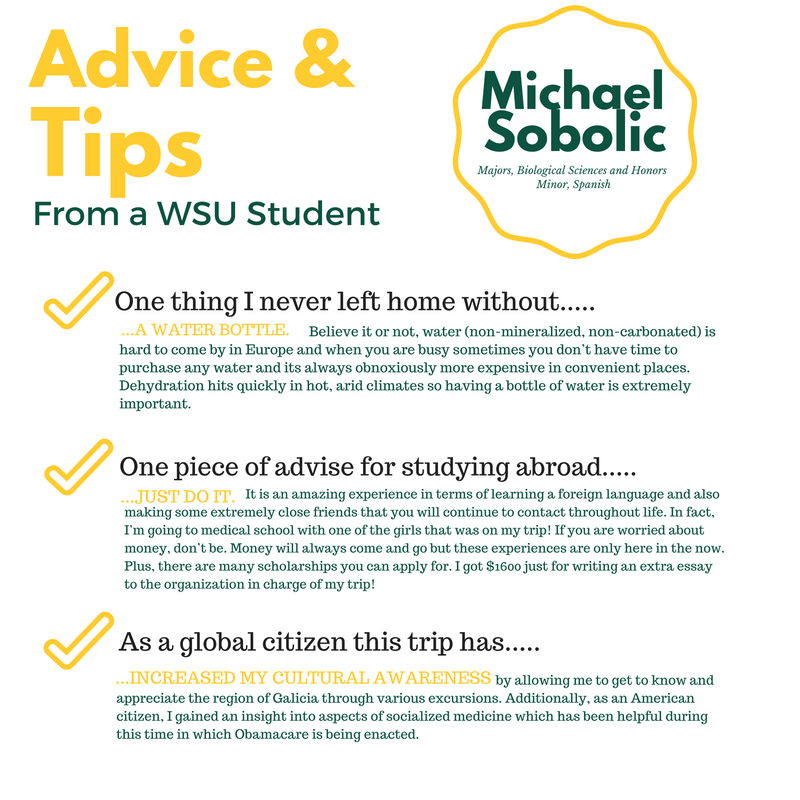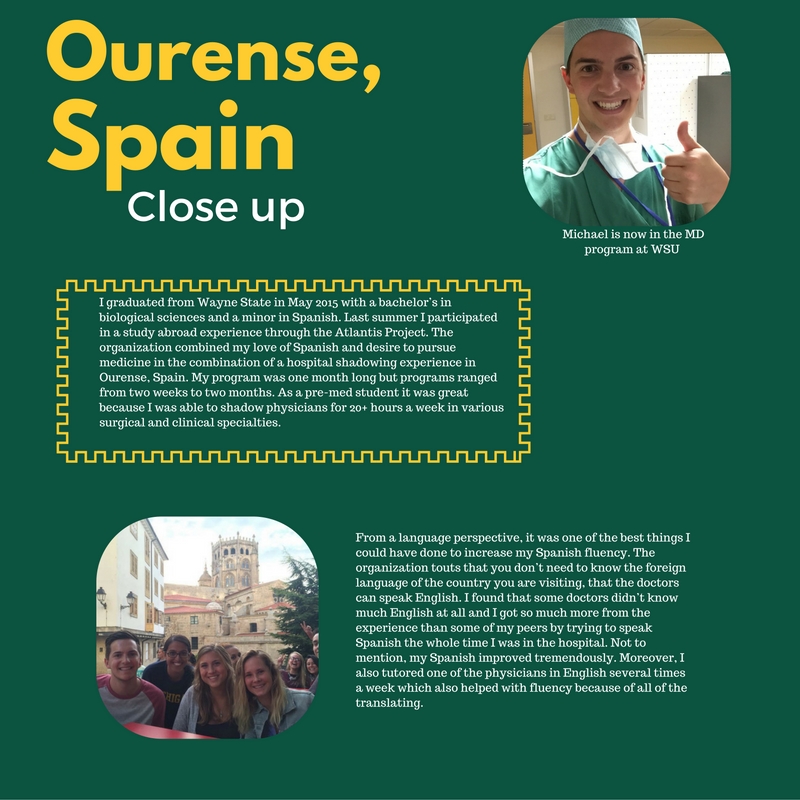Sobolic recounts experience with Spanish and med school


Text Translation
Advice and Tips From A WSU Student
Michael Sobolic
Majors, Biological Sciences and Honors, Minor, Spanish
One thing I never left home without....
.... A WATER BOTTLE. Believe it or not, water (non-mineralizad, non-carbonated) is hard to come by in Europe and when you are busy, sometimes you don't have time to purchase any water and its always obnoxiously more expensive in convenient places. Dehydration hits quickly in hot, arid climates so having a bottle of water is extremely important.
One piece of advise for studying abroad....
.... JUST DO IT. It is an amazing experience in terms of learning a foreign language and also making some extremely close friends that you will continue to contact throughout life. In fact, I'm going to medical school with one of the girls that was on my trip! If you are worried about money, don't be. Money will always come and go but these experiences are only here in the now. Plus, there are many scholarships you can apply for. I got $1600 just for writing an extra essay to the organization in charge of my trip!
As a global citizen this trip has...
.... .... INCREASED MY CULUTRAL AWARENESS by allowing me to get to know and appreciate the region of Galicia through various excursions. Additionally, as an American citizen, I gained an insight into aspects of socialized medicine which has been helpful during this time in which Obamacare is being enacted.
Ourense, Spain
Close Up
Michael is now in the MD program at WSU
I graduated from Wayne State in May 2015 with a bachelor's in biological sciences and a minor in Spanish. Last summer I participated in a study abroad experience through the Atlantis Project. The organization combined my love of Spanish and desire to pursue medicine in the combination of a hospital shadowing experience in Ourense, Spain. My program was one month long but programs ranged from two weeks to two months. As a pre-med student it was great because I was able to shadow physicians for 20+ hours a week in various surgical and clinical specialties.
From a language perspective, it was one of the best things I could have done to increase my Spanish fluency. The organization touts that you don't need to know the foreign language of the country you are visiting, that the doctors can speak English. I found that some doctors didn't know much English at all and I got so much more from the experience than some of my peers by trying to speak Spanish the whole time I was in the hospital. Not to mention, my Spanish improved tremendously. Moreover, I also tutored one of the physicians in English several times a week which also helped with fluency because of all of the translating.